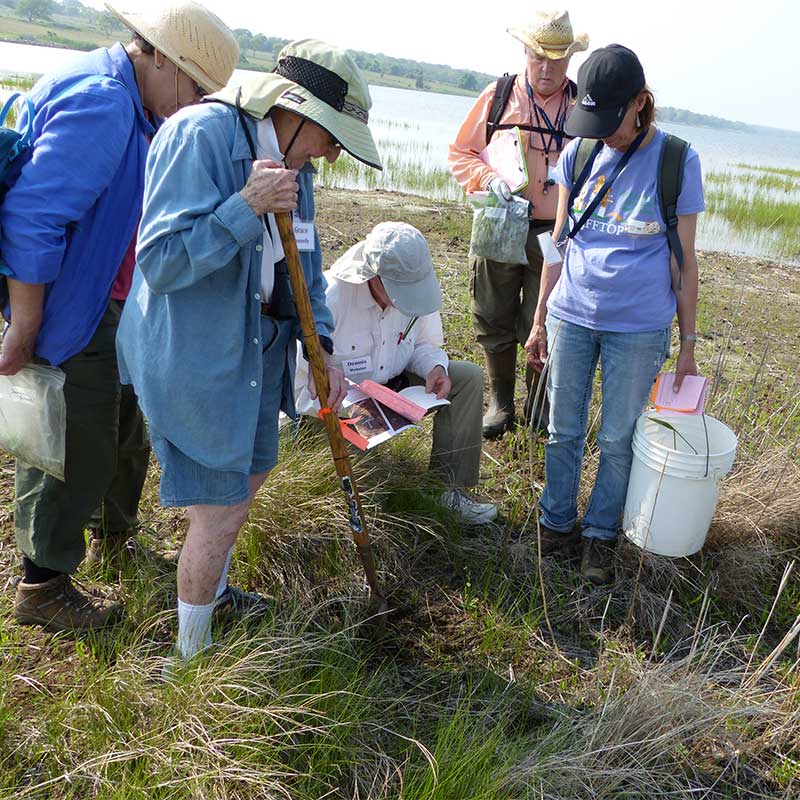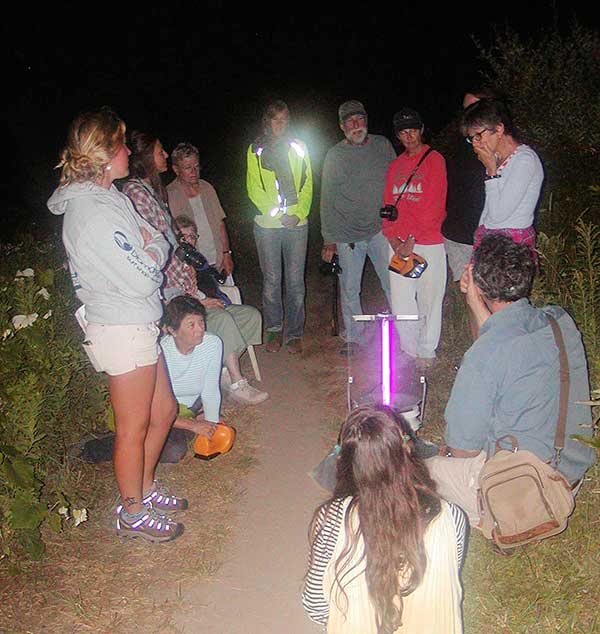
Upcoming Events
Winter Open House and Art Exhibit Opening, January 27, Tuesday, 5 p.m. Survey office, East Farm, Kingston. More details to come.
RI Nature Video Festival, February 21, Saturday. Rhode Island College, Providence. More details to come.
Plant Insect Community Network 1-Day Conference, March 7, Saturday, 9 a.m. to 5 p.m. Quonset O Club, North Kingstown. More information.
Sign up for e-news to hear about upcoming events.
Last Wednesday Tea, 4 p.m. on the last Wednesday of every month. All are welcome, free, in-person at the office or online via zoom, your choice. Contact the office for zoom link.
Events & Awards: Learn More >>

BioBlitz
. . . is an effort to count as many species as possible in 24 hours, held annually in Rhode Island since 2000, the longest-running such event in the world.

Conferences
. . . provide a forum for diverse parties to discuss key issues related to Rhode Island’s biota and habitats. Here is info on past and upcoming conferences.
Henry & Theresa Godzala Research Fund
Grants made to fund small-scale but important research on Rhode Island’s biota, geology, and natural systems. Supported by Survey members and friends.
Mark D. Gould Memorial Lectures

Lectures and similar “sit-down” programs are held several times a year at venues around Rhode Island.
Out There! (Walks, Workshops and Demos)
Walks, workshops, and demonstrations give attendees a first-hand experience with particular aspects of natural history.
Open House and Natural History Art Exhibit
Members and friends mount exhibits in our offices of art inspired by natural history. Major exhibits open in conjunction with the annual Winter Open House.
Lisa Lofland Gould Native Plant Program
When Lisa Lofland Gould, the Survey’s founding executive director, retired, an endowment was raised to fund an annual event on native plants, her special expertise. The event is co-hosted with the Rhode Island Wild Plant Society and URI’s Outreach Center.
Rhode Island Natural History Week
. . . celebrates all the things we know because of natural history and the great natural history institutions around our state. Events coordinated across institutions raise the visibility of this important discipline.
